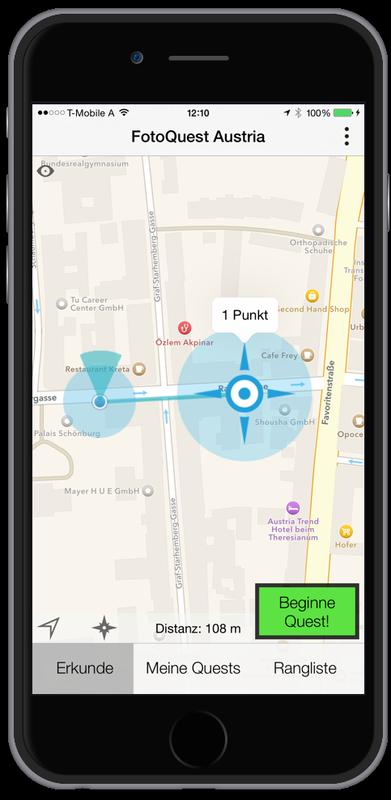
Discover FotoQuest Austria: Join the Citizen Science Adventure

Screenshot
IIASA/FotoQuest Austria
IIASA researchers today launched a summer-long citizen science campaign, FotoQuest Austria. The new game-like app allows participants to take geo-located photographs of landscapes for science. The project aims to gather information about land use change in Austria that is important for research on climate change and flood risk. It also aims to spark a sense of adventure and exploration, encouraging participants to get outside and enjoy nature. Participants can also compete for points and prizes.
“Our goal for this project is to create an openly accessible archive of geo-located pictures and information on how land is used in Austria. The campaign will help IIASA researchers generate information covering all of Austria about land cover,” says project leader Steffen Fritz.
In particular, the researchers are interested in urban expansion and the preservation of wetlands, which store large amounts of carbon dioxide and are therefore important for limiting climate change.
Fritz says, “There has not been a proper inventory of wetlands in the last 25 years. We know that wetlands are shrinking, but we don’t know by how much. As wetlands become drained they release this CO2 into the environment, which has large implications for climate change. With increased soil sealing due to urban expansion we also face increased instances of flooding”
The current campaign is the first of several planned over the next four years. By providing a snapshot of land cover over the course of several years, researchers will be able to track changes in land use.
Combining adventure and science
FotoQuest Austria is the latest in IIASA’s series of citizen science initiatives developed by the Geo-Wiki team, with a growing focus on citizen engagement and participation.
Fritz says, “In addition to providing important information for our country’s future, FotoQuest Austria is an outdoor adventure calling on each of us to explore Austria’s countryside and learn what crops and plants grow around us. It is an opportunity to appreciate and connect with our surroundings through photographing and observing different landscapes. It builds awareness, motivating us all to protect and care for the land.”
How it works
1. Download the free app on your GPS-enabled mobile device and register
2. Start your quest by choosing a destination and use the app to help you get there
3. At your destination, follow the instructions to take the necessary pictures of land cover and land use
4. Answer a few questions and take a final close-up picture (if possible) capturing the most important characteristics of the vegetation you see.
5. Upload your pictures and observations automatically, or save them to upload later.
Project information in German: http://www.iiasa.ac.at/web/home/about/news/FotoQuestAT_Deutsch.pdf
Contacts:
Steffen Fritz
Research Scholar
Ecosystems Services and Management
T +43(0) 2236 807 353
fritz@iiasa.ac.at
Dahlia Domian
Project Manager
Ecosystems Services and Management
T +43(0) 2236 807 398
domian@iiasa.ac.at
Katherine Leitzell
IIASA Press Office
Tel: +43 2236 807 316
Mob: +43 676 83 807 316
leitzell@iiasa.ac.at
About IIASA:
The International Institute for Applied Systems Analysis (IIASA) is an international scientific institute that conducts research into the critical issues of global environmental, economic, technological, and social change that we face in the twenty-first century. Our findings provide valuable options to policy makers to shape the future of our changing world. IIASA is independent and funded by scientific institutions in Africa, the Americas, Asia, Oceania, and Europe. www.iiasa.ac.at
http://fotoquest.at/
https://www.youtube.com/watch?v=oRF4wCZ90nc
http://www.iiasa.ac.at/web/home/about/news/FotoQuestAT_Deutsch.pdf












